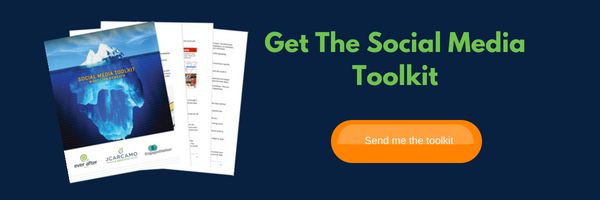One of the biggest benefits of social media is that there is something for everyone. “Social media comes in a variety of flavors. You’ve got the vanilla Facebook, the bite-sized dessert that is Twitter, the dish with the perfect presentation known as Pinterest, the on-the-go Instagram, and of course, the zero-calorie Snapchat,” says digital marketing specialist Matt Banner in a contribution to Convince and Convert. B2C or B2B…millennial, Gen Xer or Boomer…your customer IS on social. Make no mistake about that.
Important for B2B as it is for B2C brands
Normally, the pages of Casino Journal are focused on casinos and the men and women tasked with their operation. Many experts have predicted that we will look back on 2018 and see this as the year social media became a game changer for B2B brands. B2B enterprises typically have a smaller customer base, a higher price point and a longer lead time than most B2C brands (especially if you remove luxury brands from the mix). B2B customers have a need for more information and for a higher level of trust. Social media makes it easy for B2B brands to provide quick support and answers in addition to fun, share-worthy information.
A continuous shift
Social media continues to shift. Even in the 12 months since my last social media column for Casino Journal, there have been changes that have made our jobs both easier and tougher…and often at the same time. Instagram picked up on the desire users had for filters in addition to adding polls and shopping. And while many are predicting an oncoming death to Snapchat, the platform continues to evolve – adding augmented reality, context cards and information to meet the user demand to absorb knowledge. Small, though a casino’s Snapchat audience might be, you must adapt to meet the need for optimized information. Story and video options on Facebook have opened a world of opportunity to extend our brands and provide behind the scenes access. In addition, the urgency created by Facebook notifications of live happenings allows us to create opportunity for a “big reveal” or amp up the hype for an upcoming promotion or campaign.
Why you need a strategy
As I’ve mentioned before, the biggest and most important step is to truly is to understand the overarching strategy for the operation and how that filters down to a marketing and social strategy. Let’s face it. Some of our properties have undergone organizational and strategic changes since we first started using social. Perhaps it’s time to revisit our past tactics and ensure they line up to the new world we’re operating in. Once you understand the strategy, you can then start to develop your social plan tactics.
B2C Tip: When you speak of your plans try saying, “In order to (insert business strategy here) we’re going to (insert social plan here)”. If the sentence makes no logical connection to the strategy, go back and rethink your tactics.
B2B Tip: Are you expanding into a new market or just struggling to get an opening with a segment? A possible tactic might be developing relationships with influencers in that market or creating posts that drive top of the funnel traffic from that target market.
Know Your Audience
As marketers, we can’t deny the importance of knowing our audiences. That’s why this is Jules Rules #1. If you only pick one rule to follow, this should be it (but please follow all of them). Many industries are touting the use of personas. Unfortunately, our world of gaming has fine-tuned customers down to numbers – ADT, ADW, frequency, distance. And some of our vendors only categorize by number of slots!
Defining your brand personas will guide you in developing content that resonates and is worth sharing. The process of defining the personas is a look at a day in the life of that typical customer. Who are they? What do they do for leisure? Where do they look for information? Where do they look for inspiration? What makes them smile? How can you reach them? Knowing this information helps you craft the types of posts that they will share because it resonates with them. Without defining personas and targeting them with the appropriate content, you’re just shouting into the world. In addition, you will likely waste time and energy speaking to people who just don’t care.
B2C Tip: Don’t assume you are only speaking to your retail customers through social. Your high-worth customers are already showing you they are some of your biggest fans.
B2B Tip: You don’t just have one customer persona. Consider developing personas for the influencers in a purchase that come from other areas of the operation and can support (or derail) your deal.
For both B2C and B2B brands, I find it useful to give these personas names. Put their photo (or some sort of visual) up on the wall. Always look to them as you’re brainstorming.
Audit your existing content
Look at posts you’ve used in the past. What worked and what didn’t? There are lessons to be learned in both successes and failures. Does your content still fit the strategy? A full audit may uncover content that can be repurposed or updated. As you audit your past, try to tie it to your newly discovered (and documented) personas to understand how you’ve been speaking to them and how it has resonated.
Review the metrics you have been using and determine if they are creating support for the overall strategy. If you discover the metrics need changing, re-audit your content against the new measurements. As we’ve said before, the social media landscape continues to change. So, do the metrics that matter. As recently as 2013, most social media experts agreed the metrics that mattered were reach (audience growth and followers), engagement (likes, favorites and shares) and acquisition (visits to the website). Today our metrics center more around awareness (paid vs organic), a slightly different view of engagement (now, more about consumption of additional content like discovering more on your website), conversion (which plays a big role in B2B efforts) and advocacy (or a fan’s willingness to share your content with their networks).
Social media can continue to be some unmeasurable benefit to your business or you can use data to ensure improvement, optimization, alignment and effectiveness.
B2C Tip: Stay in the present as you are auditing. It’s easy to say to yourself, “OK. This didn’t work very well. Here’s what we’re going to do,” before you’ve completed your audit. You need a full picture to inform your next steps.
B2B Tip: Understand your sales funnel and the needs your personas have at each stage of the funnel. Have you left your personas high and dry once they reached another stage in your funnel?
Create a content plan and calendar
If you’re like me, you live by your calendar. If you follow me, you know I’m creating content and posts almost daily. I could never accomplish this without the proper organizational tools. That begins with a content plan and calendar. There are several tools available to suit your style. Personally, I use a combination of an Excel file and Google calendar, along with Evernote.
A solid plan allows you to define which persona you will be talking to, what you will be creating, what assets you may need and what channels you will use for distribution. If you’re a B2B marketer, you should also include the funnel stage.
Think like a cable provider. They have a variety of channels with a variety of people consuming content. They must plan and source the kind of content the consumer is craving, and they must schedule it so that it is available to be consumed.
B2C and B2B Tip: Leave room for notes. Chances are when you did your audit you couldn’t specifically remember why something worked or didn’t. Jotting quick and immediate “ahas” will help you and your team going forward. In fact, if you’re not capturing these informal observations for all your marketing programs I highly recommend it. I would also suggest you make these documents available to everyone on your team so that you may gather the observations from several viewpoints.
Now you can get your summer social media marketing beach body ready…no ab work or burpees, just good solid review and planning.



Recent Comments